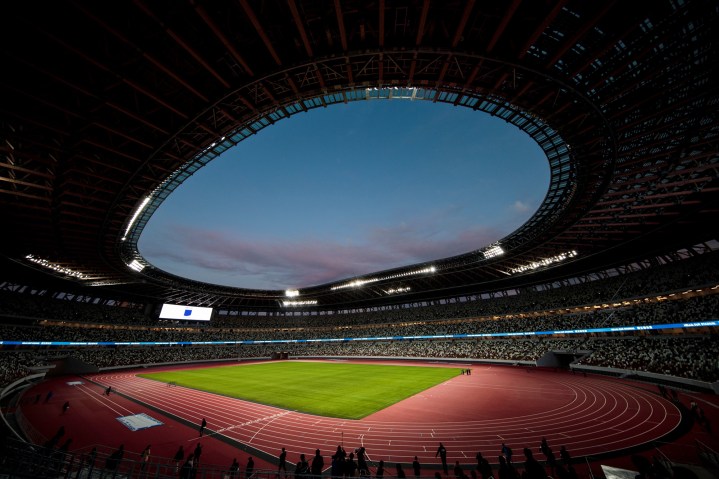It’s the last thing NBC and other major backers of the Olympics will want to hear, but Japan’s prime minister has finally admitted that the Tokyo Games may have to be rescheduled in light of the global disruption being caused by the coronavirus, formally known as COVID-19
Shinzo Abe’s comments, which came on Monday, March 23, followed an announcement several hours earlier by the International Olympic Committee (IOC) in which it said it would analyze the situation over the next four weeks before making a final decision on whether the Games can be held as planned.
The Tokyo Games are due to begin on July 24, but growing complaints from international athletes and athletics organizations over safety and lack of training opportunities amid the global disruption caused by the virus have finally forced the IOC to look at other options that include everything from a pared-down event or postponement, or even cancellation.
The IOC said at the weekend that it plans to consider scenarios that “relate to modifying existing operational plans for the Games to go ahead on 24 July 2020, and also for changes to the start date of the Games,” but insisted that “cancellation is not on the agenda.”
In recent weeks, as COVID-19 began to spread to more countries around the world, Abe consistently voiced his determination to hold the Tokyo Games on time and in its complete form, but on Monday changed tack, saying: “If it is difficult to hold the Games in such a way, we have to decide to postpone it, giving top priority to (the health of the) athletes.”
The IOC said it will consult with the Japanese authorities, global sports officials, broadcasters, and sponsors, among others, to consider how to move forward with the 2020 Games.

But moving the Olympics is easier said than done. Besides being a monumental challenge for the Japanese government, rearranging it would also be a major headache for broadcasters around the world that have busy schedules to manage, as well as for sponsors and advertisers that have paid top dollar expecting maximum coverage at a time when the sporting calendar would otherwise be relatively quiet. It could also upset organizers of other major events on the sporting calendar that won’t want to be shoved aside by Games, or take place in the shadow of the much bigger event.
Comcast-owned NBC, the main broadcaster of the Games in the U.S., has a colossal 7,000 hours of broadcast planned for the Tokyo Games. It’s already sold 90% of its ad inventory for $1.25 billion as it aims to build on the $250 million profit it pocketed from the 2016 Olympic Games in Brazil.
If the Games are pared down, or, as seems more likely, moved to another date, it could lead to lower viewing figures, which may force NBC into renegotiating ad rates, leading to a loss of income.
Comcast splashed out $4.38 billion for the U.S. media rights to four Olympic Games (Summer and Winter) from 2014 to 2020, and an additional $7.75 billion for broadcast rights to the Games from 2021 through 2032. With that kind of money flowing into the IOC’s coffers, Comcast will have a big say in what happens next.
Comcast CEO Brian Roberts said at the start of the month that despite the disruption caused by COVID-19, he was “optimistic” that the Games would begin on time. Since then, the global pandemic has worsened considerably. Digital Trends has reached out to Comcast for comment.
UPDATE: Canada becomes the first country to announce it will not be sending a team to Tokyo in July 2020, putting further pressure on the IOC to postpone the Games.


